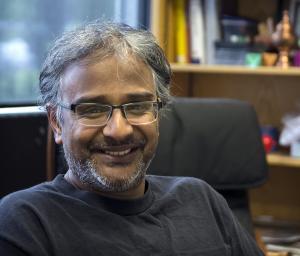Suresh Venkatasubramanian: Towards a theory (or theories) of fairness in automated decision-making
Abstract:
Suresh Venkatasubramanian is a professor at the University of Utah. His background is in algorithms and computational geometry, as well as data mining and machine learning. His current research interests lie in algorithmic fairness, and more generally the problem of understanding and explaining the results of black box decision procedures. Suresh was the John and Marva Warnock Assistant Professor at the U, and has received a CAREER award from the NSF for his work in the geometry of probability, as well as a test-of-time award at ICDE 2017 for his work in privacy. His research on algorithmic fairness has received press coverage across North America and Europe, including NPR’s Science Friday, NBC, and CNN, as well as in other media outlets. He is a member of the Computing Community Consortium (CCC) Council of the CRA, a member of the board of the ACLU in Utah, and a member of New York City’s Failure to Appear Tool (FTA) Research Advisory Council.

